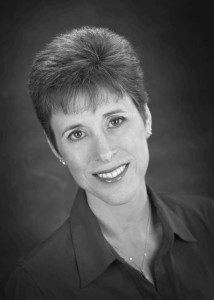Is your child “drinking from a firehose” by Debra Kessler, Psy.D.

parenting
Is your child “drinking from a firehose”?
Too much? Too fast? Too hard?
So, like many women, I have been nagging my husband to take dance lessons for years! When he finally capitulated, we found an instructor for private lessons. It didn’t go well. He grew even less inclined to say “yes” to my future appeals. Ultimately, he did and found it far more pleasurable. So, what happened? What made it different the second go-round? With some reflection, he was able to identify two key factors. As he was learning a new skill, one he found challenging and not his preference, under the watchful eye of a private instructor, it was too hard. Second, the music volume was too loud in the first attempt compared to the second. It was too much! He felt overwhelmed, like drinking from a firehose!
Too much, too fast, and too hard are often the factors behind resistance. The first question that comes to mind when I hear a parent describe a moment when their child is resistant, shuts down, or isn’t cooperative is, “Was the request too much, too fast, or too hard?”. Parents present many demands, opportunities, and expectations to their children. New, unfamiliar activities or new adventures can be overwhelming. I laugh inside when I hear the phrase that an amusement park is the “happiest place on earth” when, for some children, it is sheer torture! Activities that require high energy or focus can be ill-timed and can also meet with resistance. Finally, unforeseen processing delays with taking in information visually or auditorily or figuring out how to move because of coordination challenges can prompt shutdowns or even rages.
Your requests may be reasonable and age-appropriate, which leads to frustration on both sides of the interaction. My husband was willing to try dancing. His difficulty being overwhelmed by the sound hindered his efforts and disappointed me. It is easy to appreciate how “Too much, too fast, or too hard” shows up with adults who can reflect and find words to express their experiences.
Children don’t come to us knowing what overwhelms them. Furthermore, they are unique, with strengths and weaknesses that unfold as they grow and develop. The diagnosis of ADHD is typically made when a child is in first or second grade or any time in their academic life when “symptoms are present in two or more settings.” Assessing for dyslexia begins at seven years of age or 1st grade. Add PE or team play competition to the mix, and more differences emerge. In the teen years, social demands become more complex and academics more multifaceted. More complex occult challenges may take longer to identify.
Mule-like resistance can show up if your child or partner struggles with allergies, an empty tummy, poor sleep, or is overloaded with anxieties or other concerns. These struggles beneath the surface will inevitably lead to misunderstandings at their best or conflict at their worst.
Consider the experience of drinking from a firehose. When your child experiences things coming at them too much, too fast, or too hard, it can feel like that. In making requests, parents don’t intend to cause distress. The shift to consider their child is bombarded or overwhelmed, compassion emerges, and the door opens to options to move forward.
As a parent, you can begin exploring options for moving forward with your child. “What is too much?” “What is too fast” or “What is too hard?” allows discovering the challenge and opens the door to avenues to be supportive. Here are some of the many questions you can consider:
Too much: Are there too many requests coming at once? Is there too much sensory input happening, like my husband with the music volume at the ill-fated dance lessons? Is it more than the child has energy for because of the time of day, poor sleep, feeling ill, or just plain out of gas?
Too fast: Is it too fast, the transition from one thing to the next? Do they need more time to take in the information before acting on a request? Are they having trouble following the flow, or the rate of speed at which information is coming at them via visual or auditory channels, or figuring out where or how to move their bodies?
Too hard: Is it too hard because it is a poor fit, like trying to be graceful or musical when you are not wired that way and have had to practice or instruction? Is there difficulty in meeting expectations because they need more fundamentals?
When you encounter resistance, rather than judge it as oppositional, defiant, resistant, or stubborn, take a step back to consider how your child’s reaction comes from feeling like they are drinking from a firehose. No one wants to feel overwhelmed, incompetent, embarrassed, or shamed. Ultimately, it is not about giving up the goal but figuring out what is getting in the way of moving toward it. And, yes, once we figured out the sound and intense attention in dance lessons were too much, we moved to a dance class with others in a studio where the music wasn’t overwhelming; my husband is now willing to go to dance class. Success!
 Debra Kessler, Psy.D. is a licensed clinical psychologist who specializes in the care of children and their families. Dr. Kessler was awarded her Bachelor of Science in Nursing, graduating Magna Cum Laude from Vanderbilt University. While working as an RN in Pediatric Intensive Care, she pursued a Masters Degree in Pediatrics from UCLA to further her skills in caring for children. After a career in nursing that included bedside nursing, Kessler chose to focus her attention on addressing the emotional needs of children and their families by obtaining a Doctorate in Clinical Psychology at California School of Professional Psychology. Her post-doctorate work was done with Child Development Institute treating autistic and developmentally challenged preschool and young children and at Reiss-Davis Child Study center addressing the needs of school children, adolescents and their families. She has contributed to Infant/Child Mental Health, Early Intervention, and Relationship-Based Therapies: A Neurorelational Framework for Interdisciplinary Practice (Lillas &Turnbull 2009). Dr. Kessler has an active practice in Montrose, California. In a family centered manner, she treats a range of developmental and emotional issues including adoption/attachment difficulties, bipolar disorder, anxiety, depression, autism/Asperger’s syndrome, ADHD, learning challenges, regulatory difficulties and other issues that interfere with children reaching their potential.
Debra Kessler, Psy.D. is a licensed clinical psychologist who specializes in the care of children and their families. Dr. Kessler was awarded her Bachelor of Science in Nursing, graduating Magna Cum Laude from Vanderbilt University. While working as an RN in Pediatric Intensive Care, she pursued a Masters Degree in Pediatrics from UCLA to further her skills in caring for children. After a career in nursing that included bedside nursing, Kessler chose to focus her attention on addressing the emotional needs of children and their families by obtaining a Doctorate in Clinical Psychology at California School of Professional Psychology. Her post-doctorate work was done with Child Development Institute treating autistic and developmentally challenged preschool and young children and at Reiss-Davis Child Study center addressing the needs of school children, adolescents and their families. She has contributed to Infant/Child Mental Health, Early Intervention, and Relationship-Based Therapies: A Neurorelational Framework for Interdisciplinary Practice (Lillas &Turnbull 2009). Dr. Kessler has an active practice in Montrose, California. In a family centered manner, she treats a range of developmental and emotional issues including adoption/attachment difficulties, bipolar disorder, anxiety, depression, autism/Asperger’s syndrome, ADHD, learning challenges, regulatory difficulties and other issues that interfere with children reaching their potential.
Other Posts by This Author:
Nerf Guns – What Are We Afraid Of?
We Attend to our Children’s Overbite, How about Challenges in their Learning?
More—-
To Learn More Visit drdebrakessler.com
Tags: child development, parenting, personal growth








